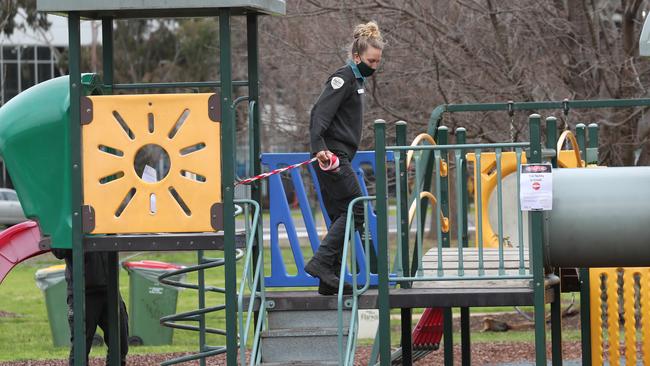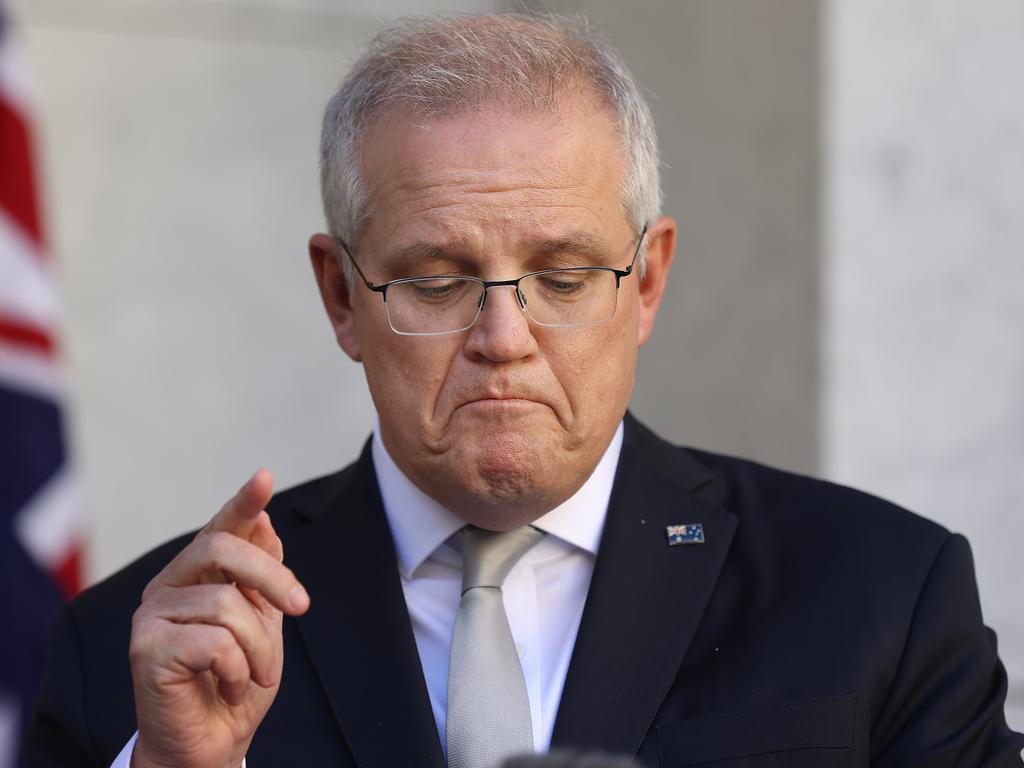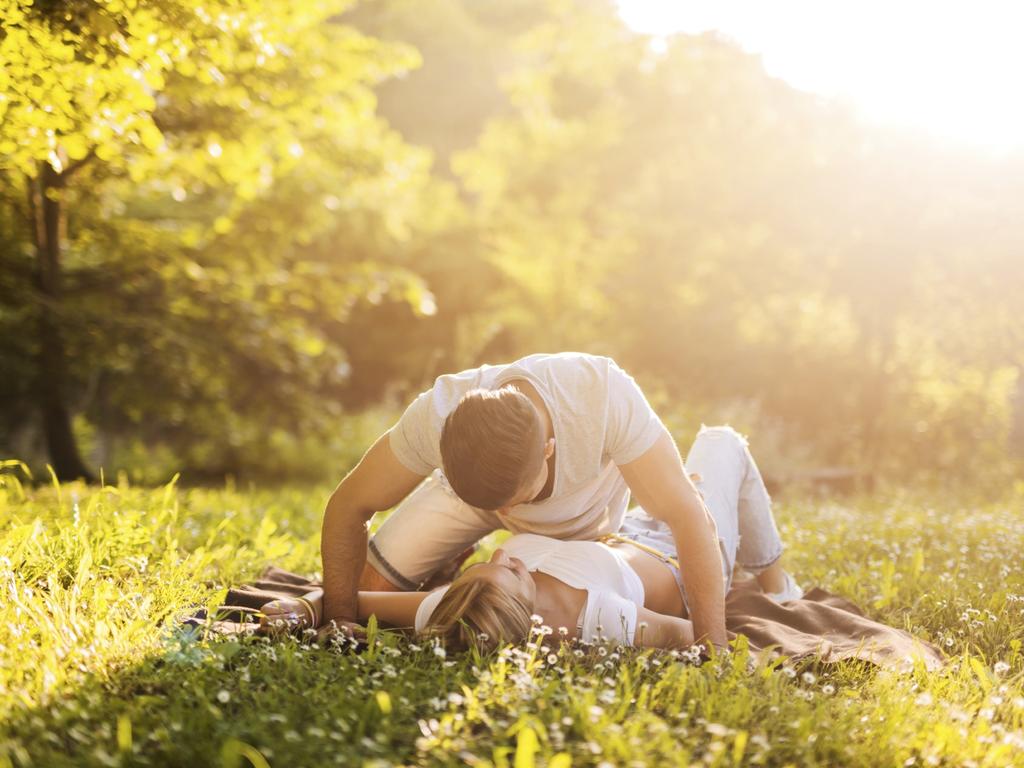Fun police need to produce evidence or let children play

The dystopian nightmare has returned in a grim rerun of the darkest days of last year’s lockdown when barriers surrounded playgrounds and sports areas were cordoned off under public health orders.
Victorians are told these are necessary sacrifices to beat the virus. Yet the virus pops up again and again like an unwinnable game of whack-a-mole.
Premier Daniel Andrews provides no evidence to support his latest tough restrictions. The health advice remains unpublished. There’s no science, no studies and no empirical data to back up the decision to impose a curfew and shut playgrounds.
“It is not for me to prove the efficacy of any one measure,” Andrews said when asked for evidence to support a curfew. “It is not for me to provide hard data.”
Chief health officer Brett Sutton echoed that sentiment.
“A lot of these things will remain in a space where it can’t be definitive because they have been applied with a whole bunch of other interventions.”
He said the restrictions were “part of a suite of very successful interventions” used to crush Victoria’s second wave last year.
As opposed to last year’s lockdown, there is now plenty of robust research based on millions of cases abroad to guide decision-making. It simply doesn’t cut it to say that we’re replicating last year’s stab-in-the-dark strategy when experts were still learning about the newly emerged virus.
It may come as a shock to Victorians that global experts who’ve been at the coalface of the pandemic say a preponderance of evidence shows that closing playgrounds and even wearing masks outdoors have no impact on the virus’s spread.
“For Australia, this late in the game, to close down outdoor playgrounds seems extremely draconian,” said Professor Monica Gandhi, a leading US infectious disease expert. “I can’t believe we are doing this to children.”
She said that as opposed to last year, there is now extensive research that shows the virus, including the Delta variant, rarely spreads outdoors. Being outdoors, she says, is the safest place because tiny aerosolised droplets rapidly dissipate in the air and are deactivated by ultraviolet radiation, heat and humidity.
“If your strategy is to say we’re closing playgrounds because we feel it worked last year, I would say I don’t think there’s any evidence of that,” said UK professor Mike Weed, a public policy expert whose team studied 27,000 cases and found “an absolute minuscule of those resulted from outdoor transmission”.
Gandhi cites a range of studies including one in Wuhan, China, where just one in 7324 infections investigated was linked to outdoor transmissions. In a recent analysis of more than 232,164 infections in Ireland, only one case in every 1000 was traced to an outdoor transmission.
Experts estimate that about 0.1 per cent of Covid cases globally were spread in exclusively outdoor settings. The Delta variant is more infectious than the original variant, but Gandhi says it spreads the same way. In fact, she says, the science on the rarity of outdoor transmissions is so overwhelming that masks are now believed to have negligible efficacy except in crowded outdoor locations.
British infectious disease expert Muge Cevik said the UK never implemented an outdoor mask mandate for that reason. Playgrounds in Britain, she said, were never closed even when there were thousands of cases a day because they were not infection sites.
Authorities should avoid arbitrary and unnecessarily strict rules, she said, because it “can affect people’s trust” and their willingness “to engage in much higher, important interventions” such as vaccinations.
Under fire for shutting down playgrounds, Sutton claims to be investigating two cases of possible outdoor transmission related to children. If true, a peer-review paper would be eagerly read by international researchers who are seeing few infections in outdoor locations – even in countries with high population density and thousands of Covid cases a day.
Investigations into suspected outdoor transmissions, they say, inevitably discovers the infection took place at an indoor location connected to the site, such as toilets. At the MCG cluster, that might include indoor member areas, passages and toilets.
ANU infectious disease expert Professor Peter Collignon says as with all medical decisions the key is “putting restrictions in place that have the maximum benefit with the least amount of harm”.
Among the greatest costs of lockdowns is mental health, substance abuse and domestic violence – all of which are spiking in Victoria. Melbourne GP Stacey Harris has been inundated with once-happy, well-adjusted teenagers suffering severe depression, suicidal thoughts and self-harming. “They’re at breaking point,” she told 3AW radio. “Lockdowns are destroying kids.”
Child psychiatrists and psychologists are booked solid for months. One child psychiatrist was booked up for 2021 in January this year. Her office gets at least 10 calls a day from parents in tears, begging for appointments for their children. In all her years in the profession, she’s never seen this number of cases.
“There is a total epidemic,” she said, asking for her name to be withheld out of deference to her patients. “This year is worse because last year at least there was hope.”
Melbourne will soon have the dubious honour of overtaking London’s 207 days under lockdown. Yet Melburnians are yet to see the health advice that has underpinned its world record rolling lockdowns, the latest wave of which began in May.
This is no small matter. Democracy dies in darkness, as the saying goes. The “Daily Dan” news conferences provide plenty of spin but little depth and no evidence. The persistent lack of published health advice in Victoria means there is no transparency and no opportunity for scrutiny and government accountability. Transparency is a basic tenet of a democracy and vital to ensure sound policymaking.
As Victoria prepares to take over London’s lockdown record, it’s worthwhile for us all to look at the data presented by the Scientific Advisory Group for Emergencies, the panel of experts advising the British government on its pandemic strategy. SAGE sets a high bar in providing transparent and rigorous evidence-based decision-making. It publishes the minutes of its meetings, data, modelling and the research that informs its decisions. Victorians, and indeed Australians, deserve no less.
Andrews is skilled at creating diversions to avoid public scrutiny. Like a character in a Laurel and Hardy skit, he and his people regularly throw proverbial “cream pies” of blame – whether at maskless movers, “nebuliser guy” or NSW – before backing from the fray while everyone dukes it out.
Meanwhile, the public forgets the Andrews government has not provided data or evidence to support dubious restrictions such as curfews and playground closures other than throwaway lines at news conferences.
The failure to back up its decisions with published evidence is a slap in the face to democratic principles in Victoria, particularly when the policies curb basic freedoms such as children playing in playgrounds.
Eighteen months into this pandemic, Victorians deserve better than being told to accept harsh rules that curtail their democratic rights based on blind faith alone.
Megan Goldin is a best-selling author and journalist living in Melbourne






A police car pulls up at a Melbourne park and, like a chase scene in a RoboCop movie, teenagers kicking a footy take fright and flee.